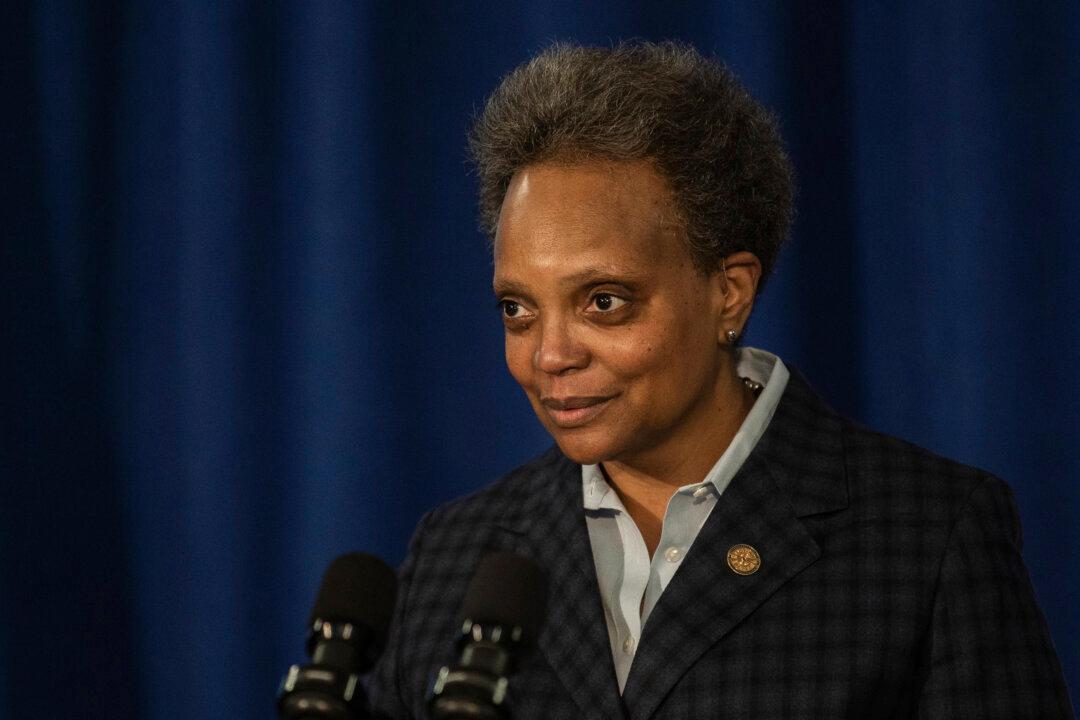CHICAGO—Chicago’s largest police union on Wednesday issued a vote of no confidence against Mayor Lori Lightfoot and Chicago Police Department Superintendent David Brown.
The vote came during a Fraternal Order of Police (FOP) meeting where police officers vented their frustrations, new and old, with the mayor and and the police department, Chicago FOP president John Catanzara told The Epoch Times.





